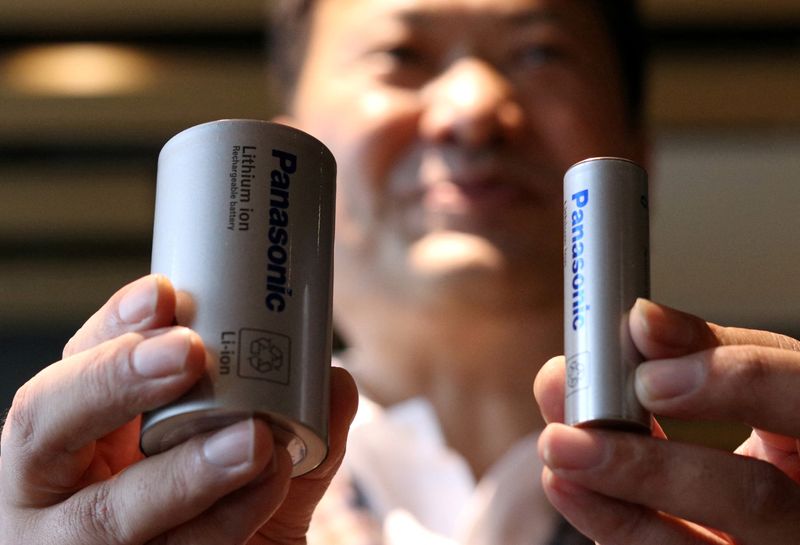By Hyunjoo Jin and Kiyoshi Takenaka
SAN FRANCISCO/TOKYO (Reuters) - Panasonic (OTC:PCRFY) said on Wednesday that it will delay the commercial production of its 4680 battery cells championed by Tesla (NASDAQ:TSLA) CEO Elon Musk and begin operations during the April to September period in 2024, later than previously scheduled, as the company aims to improve their performance.
Tesla's Japanese supplier, Panasonic, previously planned to start volume production for Tesla between April 2023 to March 2024.
"Mass production rescheduled to begin during 1H FY3/25 to introduce performance improvement measures that will further enhance competitiveness," Panasonic said on its earnings presentation materials, referring to the first half of the fiscal year ending March 2025.
Panasonic is running a pilot 4680 production line at its Wakayama factory in Japan, while Tesla is already producing the 4680 battery cells, which Musk has touted as being key to making cheaper and compelling electric cars. But the carmaker struggled to meet its targets for production and performance of the cells.
Tesla executive Drew Baglino said at a recent conference call that the company plans to steadily ramp production of 4680 battery cells ahead of Cybertruck production next year. Tesla currently uses the cells in a base Model Y.

Tesla, which makes 4680 battery cells at its factories in California and Texas, said they were producing them for more than 1,000 cars per week as of the end of 2022, equivalent to about one-fifth of the annual production capacity at its Texas factory.
Tesla's South Korean supplier LG Energy Solution said last month that it planned to set up a new 4680 production line at its domestic factory by the end of this year, but did not say when the batteries would start volume production.